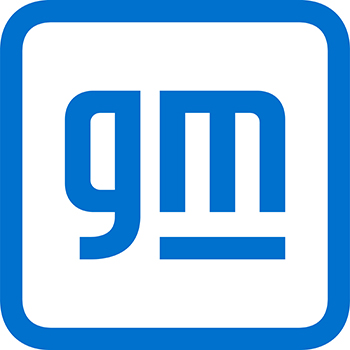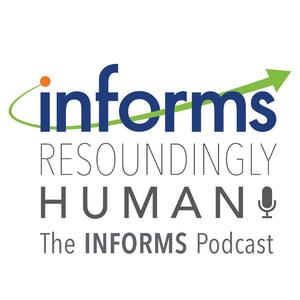Published: March 25, 2022

This podcast is part of a special series featuring the 2022 finalist teams for the INFORMS Franz Edelman Award for Achievement in Advanced Analytics, Operations Research and Management Science, the most prestigious award for achievement in the practice of O.R. and advanced analytics.
For more than four decades, the Edelman Award has recognized contributions that are transforming how we approach some of the world’s most complex problems. Finalists for the Edelman Award have contributed to a cumulative impact of more than $336 billion since the award’s inception, as well as countless other nonmonetary benefits. The winner of this year’s award will be announced at the 2022 INFORMS Business Analytics Conference, April 3-5.
Joining me for this episode are Peiling Wu-Smith, Research Manager and Technical Fellow, and Kathryn Schumacher, Staff Researcher, both with the Advanced Analytics Center of Expertise in Chief Data & Analytics Office, to discuss the finalist entry from the team at General Motors.
General Motors (GM) is on a journey toward helping to create a world with zero emissions, zero crashes and zero congestion. Decisions on new product content, packaging and pricing are central to this goal and the GM customer experience. Vehicle Content Optimization (VCO) helps GM make these decisions while offering a full-line portfolio of vehicles that meet the vast diversity of customer needs and preferences. Developed entirely within GM, VCO combines advanced consumer market research, discrete choice models and novel optimization algorithms into a user-friendly, fully productionized system which has had a significant impact on GM’s Global Vehicle Development process.
The key value proposition of the Vehicle Content Optimization process is that we’re keeping the voice of the customer at the center of our decision making. Our approach leverages the voice of the customer and comprehends the complex dynamics and trade-offs involved in the decision process. Specifically, the VCO process includes several key proprietary technical innovations, including a custom market research design, a custom Bayesian Markov Chain Monte Carlo fitting procedure, a calibrated market simulator, and a novel multi-objective, non-linear optimizer. These innovations are protected through nine documented GM trade secret inventions.
Interviewed this episode:

Peiling Wu, Smith, Kathryn Schumacher
General Motors
Peiling Wu-Smith is a research manager and technical fellow in the Advanced Analytics COE of General Motors Chief Data & Analytics Office, focusing on applying advanced analytics to GM’s enterprise-wide business. She received her Ph.D. in industrial engineering and operations research at Lehigh University and is recognized as a member of the GM team awarded the INFORMS Prize for its “sustained track record of innovative and impactful applied operations research and advanced analytics.”
Kathryn Schumacher is a staff researcher in the Advanced Analytics COE of General Motors Chief Data & Analytics Office.
Episode Transcript
Ashley Kilgore:
This podcast is part of a special series featuring the 2022 finalist teams for the INFORMS Franz Edelman Award for Achievement in Advanced Analytics, Operations Research, and Management Science, the most prestigious award for achievement in the practice of OR and advanced analytics.
Ashley Kilgore:
For more than four decades, the Edelman Award has recognized contributions that are transforming how we approach some of the world’s most complex problems. Finalists for the Edelman Award have contributed to a cumulative impact more than $336 billion since the award’s inception, as well as countless other non-monetary benefits. The winner of this year award will be announced at the 2022 INFORMS Business Analytics Conference held April 3rd to 5th in Houston, Texas.
Ashley Kilgore:
Joining me for this episode are Peiling Wu-Smith, research manager and technical fellow, and Kathryn Schumacher, staff researcher, both with the advanced analytics center of expertise and chief data in analytics office, to discuss the finalist entry from the team at General Motors. General Motors is on a journey toward helping to create a world with zero emissions, zero crashes, and zero congestion. Decisions on new products content, packaging and pricing are central to this goal, and the GM customer experience. Vehicle content optimization or VCO, helps GM make these decisions while offering a full-line portfolio of vehicles that meet the vast diversity of customer needs and preferences. Developed entirely within GM, VCO combines advanced consumer market research, discrete choice models and novel optimization algorithms into a user-friendly fully productionized system, which has had a significant impact on GM’s global vehicle development process.
Ashley Kilgore:
Peiling, Kathryn, thank you so much for joining me. I’m looking forward to discussing GM’s work.
Peiling Wu-Smith:
Glad to join you. Thank you for inviting us.
Kathryn Schumacher:
A pleasure to be with you.
Ashley Kilgore:
To start, could you share what are some of the unique challenges facing GM in the development of new products?
Peiling Wu-Smith:
Yeah. Let me first provide some background to answer your question. As an automaker, GM spends billions of dollars each year, designing new vehicle and bringing them to market. It takes several years to develop a new vehicle from concept to production. In today’s GM vehicles, customers can find hundreds of features ranging from different types of engines and propulsion systems to various interior and exterior features like heated seats, built-in navigation system, lane departure warning, sunroof, et cetera. We call these features the vehicle’s content.
Peiling Wu-Smith:
As part of the vehicle development process, contenting decisions are made years in advance. Those decisions can swim probability by hundreds of millions of dollars, and it can significant impact our customer’s experiences. So in GM, we capture contenting decisions in an order guide.
Peiling Wu-Smith:
What is an order guide? Well, think of a product catalog that you may find at a dealership or an online catalog when you try to build your own vehicle. It basically tells you how many trim levels our vehicle offers. For each trim level, what features are standard or optional and how they are priced.
Peiling Wu-Smith:
On one hand, making the right contenting and pricing decisions far in advance is critical because these decisions drive downstream engineering, tooling investment, sourcing, and manufacturing decisions. On the other hand, it is a complex mixed problem that requires balancing future consumer needs, price to customers, cost to GM and GM’s profitability. And it is a challenging mathematical problem that is high dimensional, highly non-linear and multimodal with complex business constraints. So vehicle content automation was developed to address these challenges. This capability has helped GM transform the contenting and pricing decision process from intuition and real-world looking kind of metrics to a fundamentally new consumer data driven approach.
Ashley Kilgore:
And regarding these challenges you mentioned, can you share what your approach was for addressing them? What different factors did you have to consider?
Kathryn Schumacher:
Sure. Our vehicle content optimization process consists of four main building blocks. First, we start with market research to learn what customers want and how they make trade offs. Second, we use this market research to fit a discrete choice model where quantify individual consumer preferences. Third, using those preferences for a given set of planned product offerings, we simulate customer purchase decisions and predict GM’s resulting sales volume and profit. And then finally, we use an optimization procedure to generate prescriptive recommendations to inform GM’s contenting strategy. The optimization procedure constructs order guides that produce the highest sales volume or highest profit or a combination of both.
Ashley Kilgore:
And now to follow up on that, what was unique about your approach?
Kathryn Schumacher:
Yes. Automakers have been contenting and pricing decisions for over 100 years, but the process typically has not used advanced analytics in the past. The product teams would traditionally rely on past performance and expert judgment to make contenting and pricing decisions. They looked back at historical sales to see how well different vehicle configurations sold in the past, and then use their experience or judgment to make decisions about their future product plan.
Kathryn Schumacher:
And they may also look at what the competitors are offering, but past performance does not tell us about changing consumer preferences, and mimicking what competitors do at best would allow GM to be a fast follower. The key value proposition of the vehicle content optimization process is that we’re keeping the voice of the customer at the center of our decision making. Our approach leverages the voice of the customer and comprehends the complex dynamics and trade offs involves in the decision process. Specifically, the VCO process includes several key proprietary technical innovations, including a custom market research design, a custom Bayesian Markov-chain Monte Carlo fitting procedure, a calibrated market stimulator, and a novel multi objective non-linear optimizer. These innovations are protected through nine documented GM trade secret invention.
Ashley Kilgore:
Since its development, how widely implemented is VCO into GM’s global vehicle development process?
Peiling Wu-Smith:
Back in 2013, almost 10 years ago, was a success of 10 pilot programs. VCO was approved to be integrated into GM’s global vehicle development process. That means almost every new vehicle program will go through the VCO analysis. To support the global vehicle development process with VCO, we have a dedicated implementation team to provide VCO analysis for product teams globally, and we have a special IT development team assigned to develop a production tool for VCO, and they have continued to enhance the VCO tool.
Ashley Kilgore:
And finally, how significant has the impact of VCO been regarding profit and other outcomes for GM?
Peiling Wu-Smith:
Yes. There are several aspects of that. First of all, VCO has transformed GM’s vehicle contenting and pricing decision process with innovated customer data-driven capabilities and processes. It enables product teams to develop optimized vehicle order guides that better align with what customers really want, not what they think customer want. As a result, VCO has significantly improved GM’s bottom line. VCO has also enabled tremendous benefit in cost avoidance from tooling investment and engineering design and development.
Peiling Wu-Smith:
The success of VCO has led to a variety of additional applications. For example, VCO is used to guide many of GM’s complexity reduction initiatives. We also leveraged underlying choice model techniques in many other projects, including long-term electrical vehicle forecasting and portfolio planning scenario analysis, which are essential to helping GM achieve our long-term goal of zero emissions.
Ashley Kilgore:
Peiling and Kathryn, I’d like to thank you again for joining me and wish you and the rest of the GM team good luck in the 2022 Franz Edelman competition. Are there any final thoughts you’d like to share regarding the finalist project?
Peiling Wu-Smith:
Thank you. It is truly a great honor to be selected as an Edelman finalist. Vehicle [inaudible 00:11:28] is an analytical tool that takes a forward looking customer-centric approach, a comprehensive complex dynamics among manufacturers, dealers, and consumers. As we all know, innovation can be a long journey. It took years of cross-functional collaborative effort and high level leadership vision and support to invent VCO and to transform the larger organization to welcome its use. Today, VCO has enabled more customer-centric product development, and more efficient engineering, sourcing, and manufacturing with significant impact on customer experiences and GM bottom line. We are very proud to share the success of VCO, which makes it an enormously impactful example of operations research and applied analytics.
Ashley Kilgore:
Want to learn more? Visit resoundinglyhuman.com for additional information on this week’s episode and guest. The podcast is also available for download or streaming from Apple Podcasts, Google Play, Stitcher and Spotify. Wherever you listen, if you enjoy Resoundingly Human, please be sure to leave review to help spread the word about the podcast. Until next time, I’m Ashley Kilgore, and this is Resoundingly Human.
Want to learn more? Check out the additional resources and links listed below for more information about what was discussed in the episode.
2022 INFORMS Business Analytics Conference, April 3-5, Houston, TX
